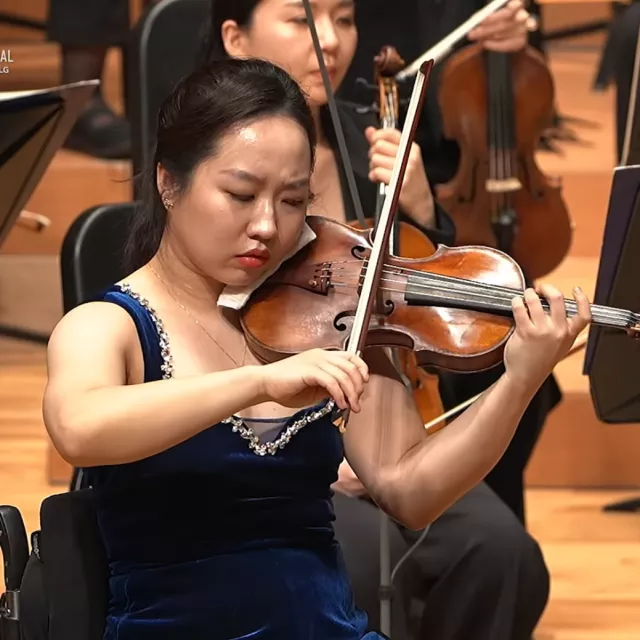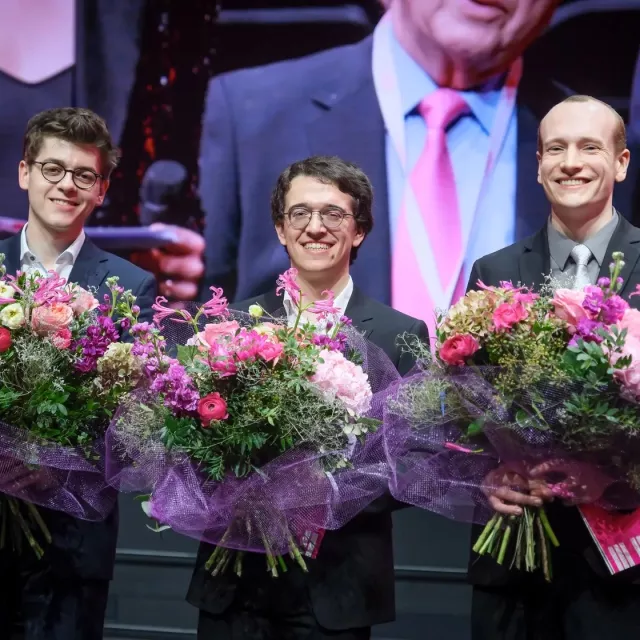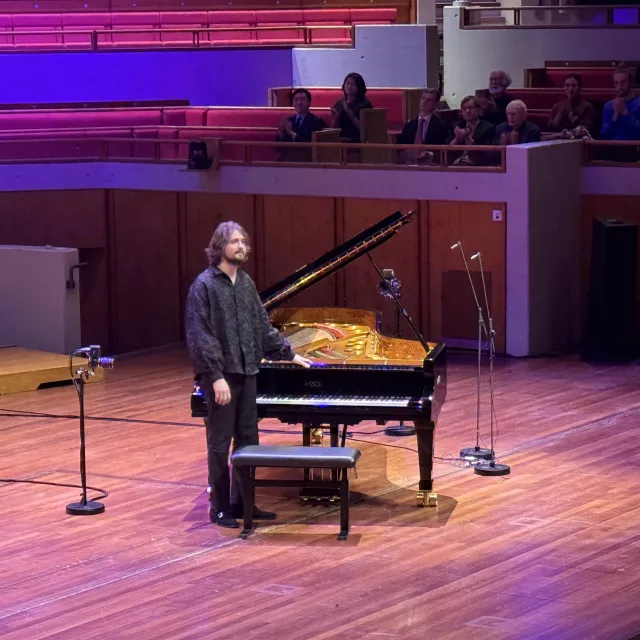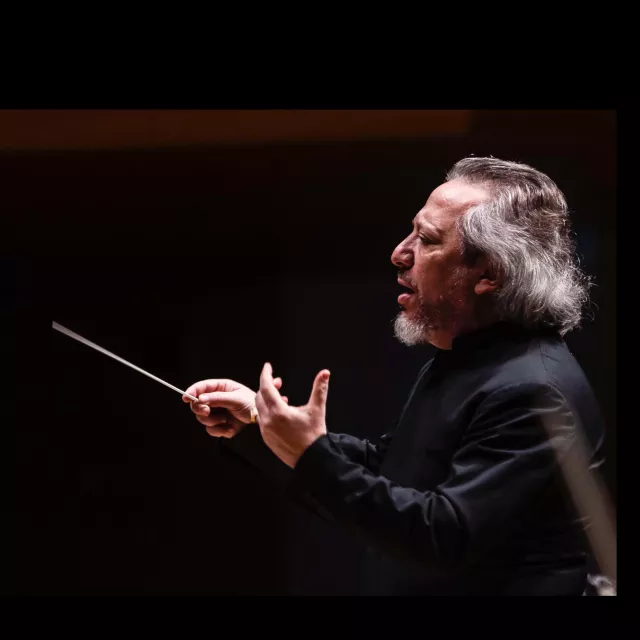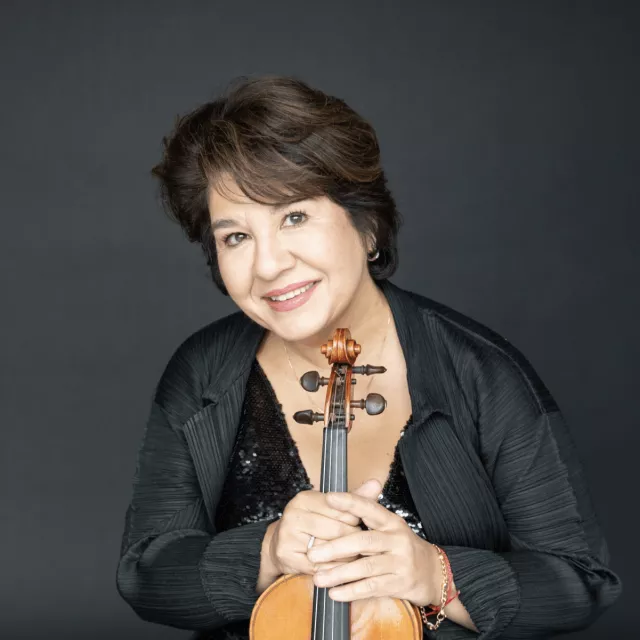WFIMCafé: KEVIN CHEN

The young Canadian piano star talks about competitions, his composing, and how to overcome stress
WFIMC: you are a very busy person… practicing, performing, composing…. how do you manage doing all this while going to high school?
Kevin Chen: There is no school today.
That sounds good… But you must have a rather full day. I don't know how you can manage all the activities that you do, all the practicing, all the composing and everything. I'm sure you must have some a social life, too?
Recently, I'm more stuck at home practicing. But I still have time to have fun, talk to friends, and go out sometimes.
After all these competitions, you must have a lot of invitations for performances abroad, with plans for Europe and Asia. How does it feel?
Right, my agent has arranged quite a few concerts for this summer and I am very much looking forward. But maybe it´s also been a little bit overwhelming…
Recently, you´ve been winning one great competition almost every year. I was wondering, were there any competitions you didn't win?
Yes. For example, at the the OSM competition in 2015, I came in third place.
Third place would still be a win, or am I wrong?
I mean, there were also competitions where I didn´t make it, not even the preselection. But you wouldn´t know about it since I was not a winner.
You went to Europe and Israel- did you also apply for the big Canadian competitions, like for Honens?
Actually, I'm too young for that.
(joking) You mean, you are not a „complete artist“ yet? Interesting. What's your take on the Tchaikovsky Competition this year? Did you know that it will start very soon?
Yes. It's still going on?
Yes. If somebody asked you to go, would you go?
Probably not. At least for a while, I don't think I'll be. I don't plan on going to more competitions.
No, I mean, apart from it being a competition, but would you go to the Tchaikovsky right now in the current situation?
I don't think so.
Your last competition was the Rubinstein. Can you tell us a bit more about it?
It was my first time in Israel. I think for every competition, my favorite part is meeting all of the people, including the host families and the organizers and above all, the audience. I still keep in contact with some of them after the competition, which is very nice.
Israel turned out to be quite a trip! It was three weeks of competition, then three weeks of going around the country doing performances. It's an excuse to go on a little vacation, isn´t it?
It´s a beautiful country, but the situation there can be difficult with the political turmoil in recent months…
Yes, but I think the people there are more used to it than we are. I always felt safe. The organizers didn't take me in any dangerousplace.
In Tel Aviv, you played Tchaikovsky, in Geneva Chopin. Both won you first Prize. Any particular reason why you chose different pieces?
Janina Fialkovska was on both juries. She was Chair at the Geneva Competition, and so I didn't want to play the same repertoire for her.Also, maybe if I work too much on the same pieces, I might lose a little bit of the creativity, or, how shall I say, the interest in my playing.
When did you start preparing the Tchaikovsky? Did you play that for a long time or you just worked on it for the Rubinstein?
I did. Three or four years ago, I did work on it and I just picked it up again for this competition.

It sounds so easy…
I really love the piece.
What's your recipe to prepare for a competition? Does it get easier after you win a big one and you do another big one? Does it feel more comfortable or you're more used to it, or does it get more difficult?
Maybe, I get more used to the environment and how the procedures go. But it also gets harder because of the stress and maybe the expectations of winning one, and then going to another competition. But for preparing, it's like… I have to consider what the jury would like to listen to. It's slightly different from a concert. Concerts are easier- there's not as much evaluation going on in a concert and I can be freer with the repertoire.
How do you deal with stress?
I don't know. I find when I go on stage, most of the stress goes away. I think, the hardest part is waiting backstage, preparing to go on stage. Nowadays, many competitions, like the Rubinstein, have a camera backstage. I always think at that point what might go wrong. But when I go on stage, it doesn't matter anymore. I just focus on music.
I just like to hear a little bit more about your overall perspective on competitions because some people are very critical about them, some others are very positive. Your teacher encouraged you to do competitions? And do you think they're good for you and why?
I do think they're useful for catapulting yourself more into the music world, since competitions have a lot of followership. I think it's a great way to help you get more noticed and heard by some important people. But for the competitive aspect, I don't think there are many people who enjoy being evaluated with numbers and rankings. I think that part is... I don't know. But at least for me, it's not so pleasant. It's definitely not as pleasant as a concert.
Waiting for the results is also unpleasant. Maybe it's hard because there are, obviously, so many good contestants and you have to be evaluated only according to what the judges feel. There´s so much uncertainty about competitions, and I can only really control my playing and nothing else. Before I enter a competition, I don't really know how the others will play or how the jury will think, or what things they're looking for. Also the order in which performances take place: I cannot control it. So all I can control is my own playing, and that´s how I calm myself down from the stress of being evaluated.
Some people don't really care very much at all about the jury. They just think what matters is yourself. All the outside circumstances, the order, the repertoire, the hall, the piano and everything, it has some influence, but in the end it doesn't really matter. But when you prepare for a competition or when you choose a competition, then you look at all these points and you think about them.
Once I travel to a competition, what's done is done, so I don't think practicing a lot once I'm there will make much of a difference anymore. I just try to relax as much as I can and make friends with the other participants because I think everyone is in the same position there.
How do you spend your time if you arrive and you have three days until you get to play? You say you don't want to practice that much anymore. But can you really relax before you get to play?
Well, I try to as much as I can. During a competition, I don't really listen to the other competitors since I think it might influence me too much. Apart from practicing, I just try to relax and be calm.
Now that you´ve played in a number of cities and have seen several countries, where's your favorite place? Are you thinking about studying in Europe at some point? Any particular plans?
Probably Germany. Hanover.
That means you will study with Arie Vardi?
Yes.
Why Hanover?
I like that sense of appreciation for the arts in Europe.
You have an Asian background. Do you visit Asia as well? Or do you feel completely Canadian, or North American? How do you associate with Asia?
I have gone to China a few times, but now the situation is not so good with COVID and everything, so I haven't been back for a while. Still, I really want to go back sometime and maybe play a concert there if I get the chance.
Do you think that is a certain cultural influence on you, a certain lifestyle, a mentality that comes from there and that you have?
Obviously, I live with my parents, so I think my lifestyle would be influenced by them. But musically, I mean, I live in a Canadian society, so I don´t think there is much influence. I think I´m like most other people here.
To finish up, maybe just a little word about your plans for the next couple of years, besides the many upcoming concerts and tours? Maybe a word on what composing means to you? What are you working on right now?
Okay. Well, I haven't recently had much time to compose, but now I think I can and I think I should try to get back at composing. After taking quite a long break from it, since I haven't really had much time for it, I think it's maybe a little bit harder to get back into it. But it's something that I really enjoy and don't want to leave behind.
Did you ever study composition? or did you just go ahead and do it?
Not properly. Just taught myself…
You just write down music or you compose on the piano? How does it happen?
Yeah. Sometimes it starts at the piano. I'm just messing around and improvising. Then if I get a good idea, I can write it down on paper or on the computer. Or other times, maybe an idea just pops into my head out of nowhere and I can write it down. But I have never studied composition properly.
That's great. Your pieces have been performed? I saw that you've written even symphonies and concertos?
Yes. I have been fortunate enough to have a few commissions, and also performances of my works.
What's your favorite among the pieces that you've written? Is there something we can listen to on the YouTube or somewhere on the internet?
No, I am afraid. Most of my competitions were written when I was younger. I find now there's not much that I'm completely satisfied with. Maybe that's why I want to write at least another piece, to see what I can really do.
©WFIMC 2023/FR
